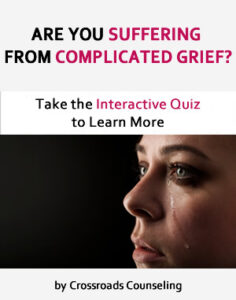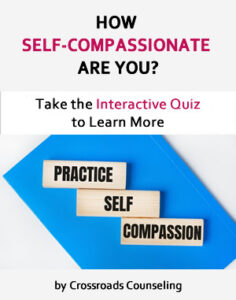3 Ways to Grieve When a Loved One Suddenly Passes
Grief is a tricky and unpredictable ride. Nothing, absolutely nothing, prepares you for it. This goes double or triple for when a loved one passes suddenly. Your foundations are rocked. Nothing makes sense. As the writer, Joan Didion, explained: “A single person is missing for you, and the whole world is empty.”
Well-intentioned people in your life will urge you to “stay strong” and eventually, “move on.” They’ll assure you that the person who died would not want you to suffer so much. They mean well, but you will need much more than clichés. You’ll need time, support, and patience.
The “Stages” of Grief
Much has been written and discussed on the topic of grief and its stages. Generally speaking, such stages definitely exist. However, they are not linear. You will experience:
- denial
- anger
- bargaining
- depression
- acceptance
- meaning
They will not arrive “in order.” These stages will appear, disappear, and reappear — seemingly at random. Understanding this randomness can go a long way in your grieving process. Suddenly losing a loved one makes little sense.
Therefore, do not expect the aftermath to make sense either. Brace yourself for a long, confusing journey. Take steps along the way to address the sorrow.
3 Ways to Move Through the Grief When a Loved One Suddenly Passes
1. Feel What You Need to Feel
Bereavement is expressed differently by each person. You don’t have to feel or act the way others expect of you. Tune into your body and mind and feel what you need to feel — when you need to feel it. Outside of cases of complicated grief (see below), there is no timetable or deadline you must feel compelled to follow.
2. Do Not Isolate
It will feel tempting to withdraw and isolate yourself. And yes, some solitude can be very healing. But grief is not a solo act.
Surround yourself with people who care deeply about you. Seek those who will listen without judgment. Find shoulders to cry on. It may feel like no one understands what you’re feeling but, even so, that does not prevent them from simply being there.
3. Practice Self-Care
The side effects of grief can be tough on you both mentally and physically. Despite the pain, you must aim to create some balance. Self-care is an excellent avenue for this effort. Creating daily habits to help yourself can serve two important purposes:
- Fortify you against the onslaught of stress
- Remind you that, despite the crisis, you are worth the effort
Factor in elements like regular sleep patterns, daily activity or exercise, healthy eating habits, and some form of stress management.
What is Complicated Grief?
Mourning is natural and normal. That said, your grief can transform into something more complicated. Keep an eye out for signs and symptoms like:
- Fixation on your loss and/or the loved one who passed to the point of obsession
- Avoidance of any reminders of your loss and/or the loved one who passed
- Emotions that begin to feel extreme or beyond your control, e.g. rage, hopelessness, bitterness, distrust, detachment, or low self-esteem
- Inability to accept the loss in a realistic way
- Self-harm, substance abuse, etc.
- Thoughts of your own death or suicide
As stated above, you are free to define your own bereavement path. But this is not meant to downplay the very real possibility of complicated grief after a sudden loss. If you’re not sure if you crossed this line, reach out for help as soon as possible.
Talking with a skilled counselor is an ideal way to stay in touch with your feelings. The grief process can feel less lonely when you commit to therapy.
Begin Grief and Loss Counseling in Phoenix and Scottsdale
If you would like to learn how grief counseling can help you during the holiday season please reach out. Our team of therapists would be honored to support you in coping with triggers. We are happy to offer services from our Phoenix, AZ-based practice and across the state. You can start your therapy journey by following these simple steps:
- Contact Crossroads Counseling
- Meet with a caring therapist
- Start finding the happiness you deserve
Reach Out for Help! You don’t have to be alone. Crossroads Counseling Can Help.
Our offices are located throughout the valley with counseling centers located in Phoenix, Anthem, Scottsdale. and online/virtually in Arizona. Call us at 623-680-3486,text 623-688-5115, or email info@crossroadsfcc.com. We offer a complimentary 20-minute phone consultation to answer your questions and better understand how we can help you.











